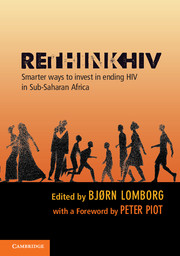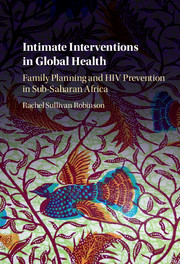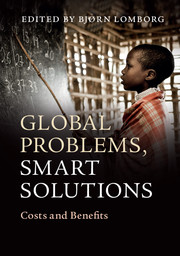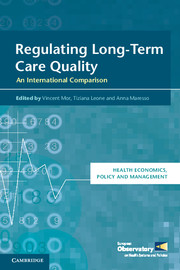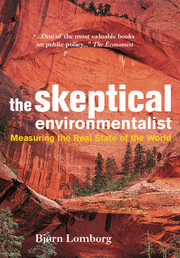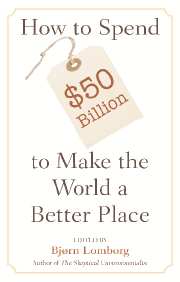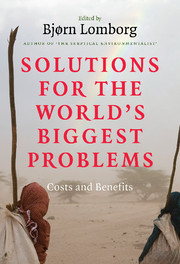RethinkHIV
Thirty years after the identification of the disease that became known as AIDS, humanitarian organizations warn that the fight against HIV/AIDS has slowed, amid a funding shortfall and donor fatigue. In this book, Bjørn Lomborg brings together research by world-class specialist authors, a foreword by UNAIDS founding director Peter Piot and perspectives from Nobel Laureates and African civil society leaders to identify the most effective ways to tackle the pandemic across sub-Saharan Africa. There remains an alarming lack of high-quality data evaluating responses to HIV. We still know too little about what works, where and how to replicate our successes. This book offers the first comprehensive attempt by teams of authors to analyze HIV/AIDS policy choices using cost-benefit analysis, across six major topics. This approach provides a provocative fresh look at the best ways to scale up the fight against this killer epidemic.
- First-ever comprehensive comparative cost-benefit analysis of responses to HIV/AIDS
- Perspectives from leading specialist authors, Nobel Laureates and African civil society leaders
- Timely and thought-provoking contribution to policy debates on combating HIV/AIDS against background of funding shortfall and donor fatigue
Reviews & endorsements
"Setting priorities for how money could be spent most effectively to fight HIV AIDS in Africa is a key priority. This pioneering work shows how economic analysis can contribute to a prioritisation for spending in this vital area. It will be invaluable to those funding both research activities and healthcare programmes in Africa.' - Professor Sir John Bell, President, Academy of Medical Sciences, and Regius Professor of Medicine, University of Oxford
Product details
November 2012Paperback
9781107679320
385 pages
246 × 174 × 18 mm
0.77kg
37 b/w illus. 73 tables
Available
Table of Contents
- Foreword Peter Piot
- Introduction Bjørn Lomborg
- Part I. The Research: Section 1. Sexual Transmission of HIV Jere R. Behrman and Hans-Peter Kohler:
- 1. Alternative perspective: sexual transmission of HIV Damien de Walque
- 2. Alternative perspective: sexual transmission of HIV Alan Whiteside
- Section 2. Prevention of Non-sexual Transmission of HIV Lori A. Bollinger:
- 3. Alternative perspective: prevention of non-sexual transmission of HIV Rob Baltussen and Jan Hontelez
- 4. Alternative perspective: prevention of non-sexual transmission of HIV Mira Johri
- Section 3. Treatment Mead Over and Geoffrey P. Garnett:
- 5. Alternative perspective: treatment Robert J. Brent
- 6. Alternative perspective: treatment John Stover
- Section 4. Strengthening Health Systems William P. McGreevey, with Carlos Avila and Mary Punchak:
- 7. Alternative perspective: strengthening health systems Till Bärnighausen, David E. Bloom and Salal Humair
- 8. Alternative perspective: strengthening health systems Nicoli Nattrass
- Section 5. Social Policy Interventions to Enhance the HIV/AIDS Response in Sub-Saharan Africa Anna Vassall, Michelle Remme and Charlotte Watts:
- 9. Alternative perspective: social policy interventions to enhance the HIV/AIDS response in sub-Saharan Africa Tony Barnett
- 10. Alternative perspective: social policy interventions to enhance the HIV/AIDS response in sub-Saharan Africa Harounan Kazianga
- Section 6. Vaccine Research and Development Robert Hecht and Dean T. Jamison, with Jared Augenstein, Gabrielle Partridge and Kira Thorien:
- 11. Alternative perspective: vaccine research and development Steven Forsythe
- 12. Alternative perspective: vaccine research and development Joshua A. Salomon
- Part II. Ranking the Opportunities: Section 7. Findings of the Nobel Laureate Economist Expert Panel Ernest Aryeetey, Paul Collier, Edward C. Prescott, Thomas C. Schelling and Vernon L. Smith:
- 13. Findings from African civil society Bactrin Killingo, Nduku Kilonzo, Christiana Laniyan, Retta Menberu and Ken Odumbe
- 14. Conclusion Bjørn Lomborg.

